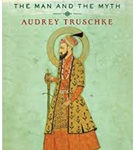The author dredges deep to dig out a fund of historical material to map out the intrigues besetting the Mughal court.
Aurangzeb: The Man and The Myth,
By Audrey Truschke
Penguin Viking,
Pages 189, Rs. 399
Reviewed by Basharat Hassan
Author Audrey Truschke puts the war of succession that led Aurangzeb to eliminate his brothers and their challenge to his ambitions in perspective. Brutal ways were not unique to Aurangzeb alone. They stemmed from absence of traditions of primogeniture among Central Asian kingdoms. It is therefore meaningless to see Aurangzeb vs. Dara Shikoh tussle as one between orthodoxy and liberalism as has been portrayed by some earlier historians. Humayun and Akbar also faced threats from their brothers. Jehangir poisoned his brother Danyal to death, even though it was made to appear mysterious. Shah Jahan felt no qualms in executing six members of the family to death on his way to the throne.
Intrigues Besetting the Mughal Court
The author dredges deep to dig out a fund of historical material to map out the intrigues besetting the Mughal court in the wake of Shah Jahan’s illness which allowed Dara to appear before the Diwan-e Khas audience for a week. A battle-hardened Aurangzeb emerged victorious. If it was not he, it would have been Dara’s turn. The methods would not have been any different. Aurangzeb was helped by his vitality, vigour, long experience in the battlefield while Dara had remained confined to the imperial court and mystic discussions and deliberations. Quotes from Manucci’s account pretty much explain the animosity between the two brothers.
Aurangzeb has been much criticised due to his religious policies, particularly with regard to temples. The author points out that the farman of 1659 by which construction of new temples was prohibited was only for the Benares city, though the reason for it is not stated by her. The 1672 farman that all lands granted to temples be called off and reserved for Muslims was a concession to Ulama. It was an order on papers and was never applied. If some temples were demolished, it was for political reasons. Faith of an individual was never a barrier in employment. Hindus held posts of Finance Minister as well as commander of army, key portfolios of the sultanate. They comprised almost one-third of the nobility under Aurangzeb, even higher than during the reign of Akbar.
This book is a great advancement on Mughal historiography.
(The reviewer is a research scholar at Aligarh Muslim University, Aligarh)


COMMENTS